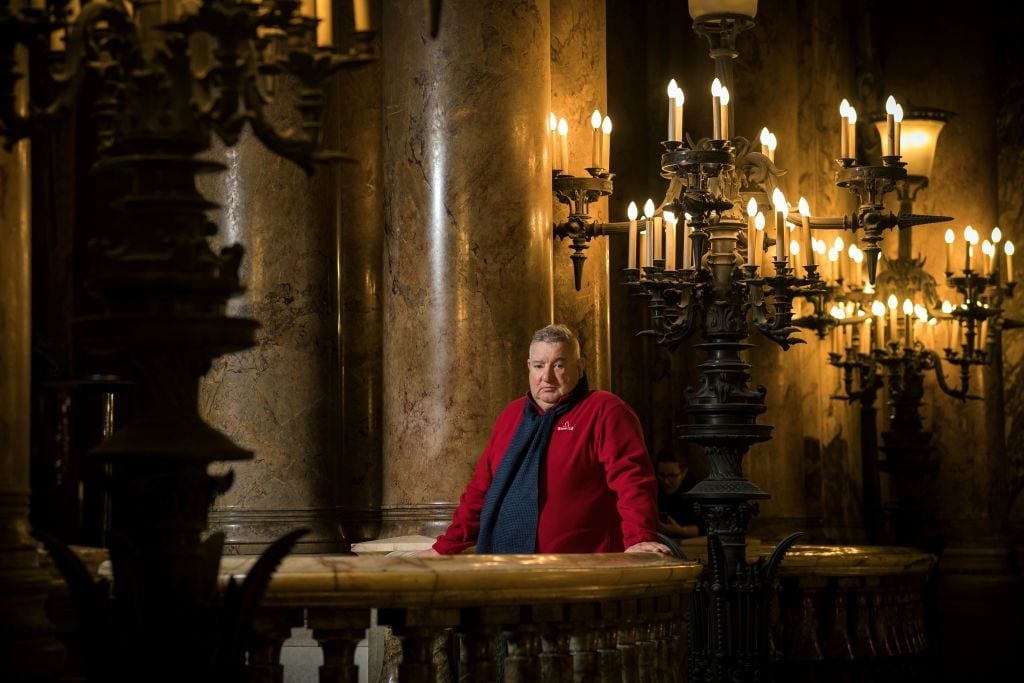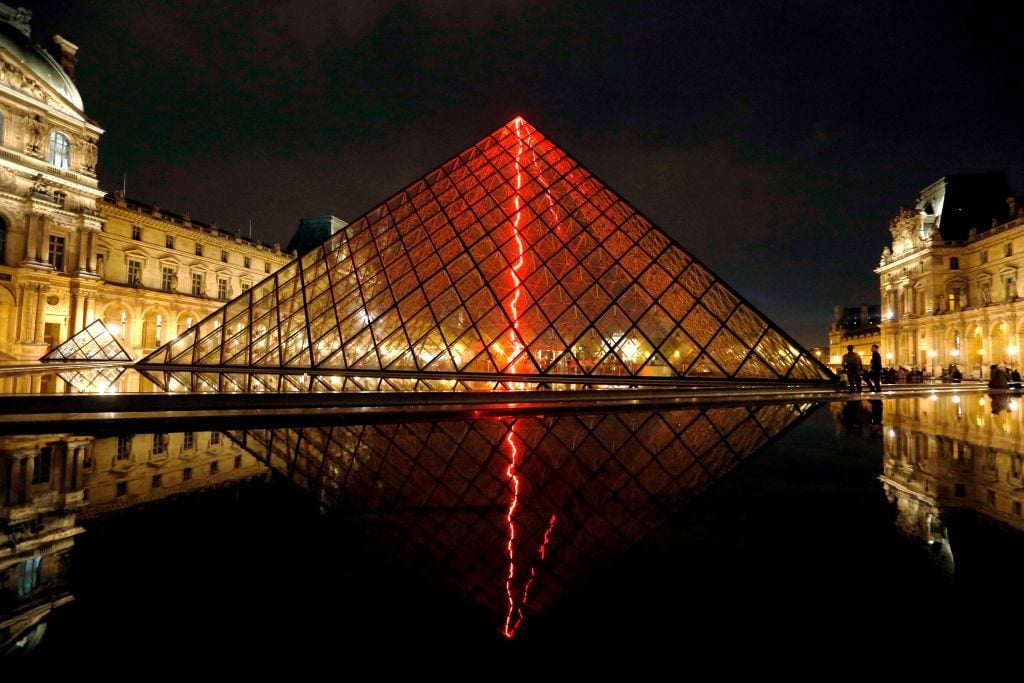Crime
French Artist Claude Lévêque’s Work Has Been Pulled From a Museum as Police Investigate His Alleged Abuse of Children
Lévêque denies the allegations.

Lévêque denies the allegations.

Naomi Rea

Claude Lévêque, a decorated artist who represented France at the 2009 Venice Biennale, has suspended his relationship with his gallery and seen his work permanently removed from the walls of a museum in Geneva in light of an ongoing criminal investigation by French prosecutors.
The Bobigny public prosecutor’s office confirmed to Artnet News that local police launched a preliminary investigation into Lévêque for “acts of rape and sexual assault on minors under the age of 15” in May 2019.
The case was put in the spotlight by an explosive report published in the French newspaper Le Monde on January 10, which detailed allegations made by the sculptor Laurent Faulon that Lévêque had sexually abused him and his two brothers as minors beginning in the late 1970s. (One of his brothers died by suicide in 1998; the other did not comment to Le Monde.)
Lévêque, his lawyer, and Faulon did not respond to repeated requests for comment from Artnet News. In a statement to Le Quotidien de L’Art, Lévêque’s lawyer, Emmanuel Pierrat, said his client denies the allegations. He also said that while his client had been interviewed by French police, one alleged victim and several witnesses joined him in denying the accusations.
Lévêque is a prominent figure in the French art world, best known for his neon installations. He has exhibited at institutions worldwide including the presidential Elysées Palace, the Louvre, and the Museum of Modern and Contemporary Art Geneva (MAMCO) in 2003.

An installation by French artist Claude Lévêque at the Pyramid du Louvre in Paris. (FRANCOIS GUILLOT/AFP via Getty Images)
Following the Le Monde report, the artist’s gallery Kamel Mennour said publicly that it would suspend its relationship with the artist “in order to allow the judicial authority to carry out the necessary investigations.” Lévêque’s is no longer listed on the gallery’s website.
Faulon, Lévêque’s accuser, told Le Monde that while he is “aware” that the statute of limitations has passed on the crimes he alleges were committed against him from the ages of 10 to 17, he has come forward in order to protect other possible victims.
Faulon shared an email with the newspaper allegedly written by Lévêque in 2018: “I regret not being able to gauge your hidden suffering, revealed in your recent confidences and accusations,” the email (translated by Artnet News) reads. “My ego, outside of reality, took me into a dream towards someone who loved me in the freshness of his feelings. It weighs me down today.”
In his statement to Le Quotidien de L’Art, Lévêque’s lawyer said his client had filed several complaints for defamation, slander, and blackmail in connection with the investigation. He added that Lévêque also filed a complaint back in 2015 after anonymous letters were sent to authorities “with the proven objective of harming his artistic work.” Officials closed the case the following year without filing charges.
The director of MAMCO, Lionel Bovier, said in a statement shared with Artnet News that he is “dismayed” by the allegations against Lévêque. The museum was made aware of a formal complaint against the artist last year, at which point the curatorial team decided to “immediately suspend any potential presence of his works in the museum.”
The museum will not resume a relationship with the artist regardless of the outcome of the investigation. “It is not my place to comment on the legal ramifications of the case detailed in the articles, but I will say this much: I will never again be able to look at these artworks without perceiving in them clues of the crimes with which he has been charged,” Bovier says. “Therefore, regardless of the verdict handed down by the courts, the museum will neither display nor circulate Claude Lévêque’s work in the future.”
The French ministry of culture published a vague press statement in November last year indicating that it had filed a report to the public prosecutor following “a letter from a sculptor and art teacher invoking very serious facts if they were proven and involving another artist.”